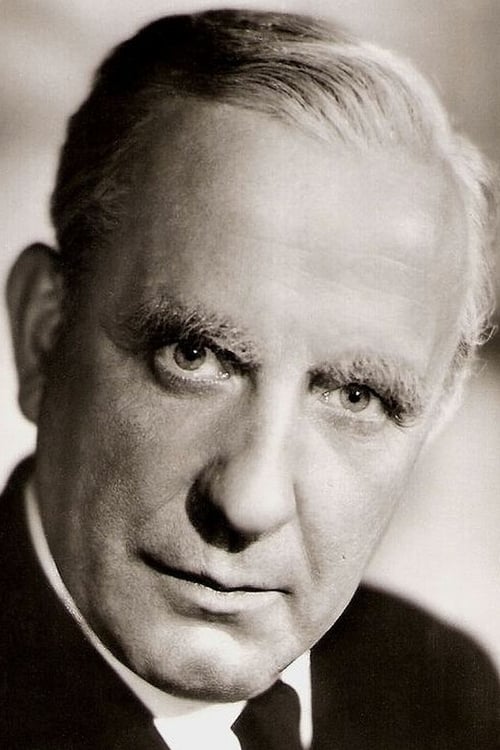O.E. Hasse
出生 : 1903-07-11, Obersitzko, Prussia, Germany [now Obrzycko, Wielkopolskie, Poland]
死亡 : 1978-09-11
略歴
O.E. Hasse (Otto Eduard Hasse) was a German stage, screen, and television actor. He is recognized by international audiences for his portrayal of the character Otto Keller in Alfred Hitchcock's 1953 film I Confess.

Lord Sherwood

Musjö

alter Mann
Based on a very successful play of the same name by Tankred Dorst, this film tells a story about Norwegian author Knut Hamsun (here played by O.E. Hasse), a Nobel prizewinner for literature who was notorious for having collaborated with the Nazi regime. After the war, rather than hand him over for prosecution, he was sent to a retirement home. A young man, bitter about the war, tracks him down and begins to harass him in various ways. The author handles everything that comes to him with remarkable dignity, which eventually removes some of the taint from his actions.
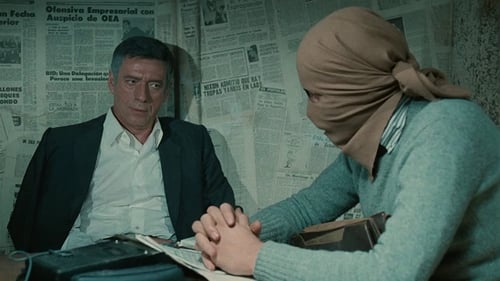
Carlos Ducas
Using the interrogation of a US counterinsurgency agent as a backdrop, the film explores the consequences of the struggle between Uruguay's government and the leftist Tupamaro guerrillas.
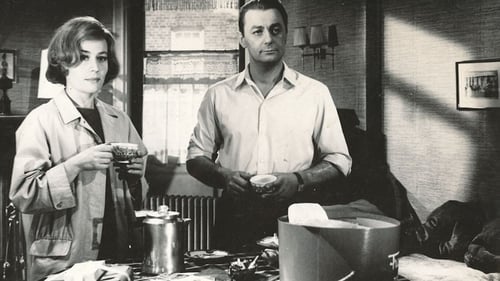
Hourvitch
When his wife leaves him, a young French actor, François Combe, moves to New York to work for a television company. One evening, he meets an attractive young woman, Kay Larsi, in a bar.
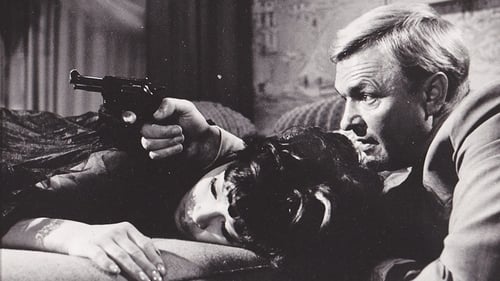
Prof. Larsen
The evil Dr. Mabuse develops a death ray with which he threatens the world.

General von Bamberg
1944 : Occupied France. Juliette (Vice) is Wehrmacht General Bamberg's mistress and enjoys a privileged life. Her younger sister Justine (Virtue) is about to marry Jean who is in the Resistance and come to Juliette for help. Both sisters end up at "la Commanderie", where Juliette becomes SS Colonel Schonberg's mistress and Justine is detained with other pretty girls who must satisfy the sexual needs of high-ranking nazi officials. Inspired by "Justine ou les infortunes de la vertu" by the marquis de Sade
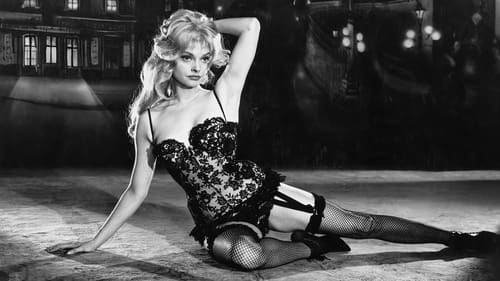
Dr. Schön
A 14-year-old girl is caught while trying to pick a doctor's pocket. The doctor ends up taking her in and turning her into a sophisticated lady, whom he marries off to a wealthy man.

Reisender
The story serves as a companion piece to Renoir's 1937 film, Grand Illusion, once more bringing together men from across the broad social spectrum of French society to depict one man's Sisyphean efforts to escape captivity in a German POW camp.

Thomas

Florestan Mississippi

Nabab

Napoleon / Ludwig XVIII.

Sir George Crofts

König Magnus

Dr. Hans Römer
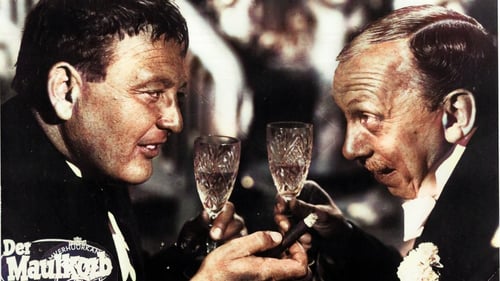
Herbert von Treskow, Staatsanwalt

Dr. Fritz Böhler, Stabsarzt
Dr. Fritz Böhler is a prisoner of war doctor in the Soviet POW camp 5110/47 near Stalingrad. Despite the harshest conditions, he tries to help his fellow prisoners with the simplest means. But when his assistant Dr. Schultheiss falls in love with the Russian doctor Alexandra Kasalinskaja, Schultheiss not only endangers his own life - because Alexandra is the lover of First Lieutenant Markow.

Robert Fleming
Katja Fleming has given up her job as an actress and married the business man Robert Fleming. But the cold that surrounds her in her modern, luxurious high-rise makes her lonely. Then she meets the author John Lawrence, who wants to convince her to perform in his new play.
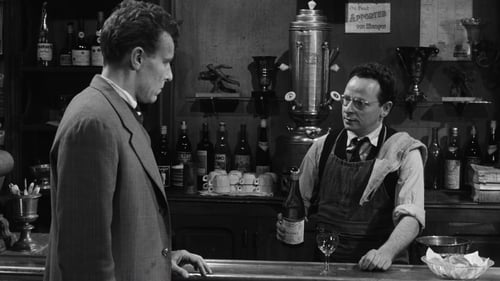
Hugo Vogel
A doctor at a run-down psychiatric hospital is offered a large sum of money to shelter a new patient. Soon the place is full of suspicious and secretive characters, all apparently international secret agents trying to find out who and what the patient is.

Ludwig Darrandt
The brother of a high ranking lawyer has killed the husband of a Polish woman, with whom he is having an affair. Can the counsel help his brother without getting himself involved in scandal?

Eric von Bergen
Cute Sophie is an amoral French girl living in a sumptuous Venetian palazzo. She is the kept woman of a very rich but undesirable fellow named Eric von Bergen, an ex-nazi turned forger.

Kaiser Wilhelm II
1910年の春の夜、フランス上院議員の屋敷では、各界の名士を招いて夜会が開かれていた。突然、灯りが消え、再び灯りが点くと数枚の名画が姿を消していて、アルセーヌ・ルパンの名刺が残されていた…。

Sir William Ashlin

Peter Hansen
An industrialist's wife was killed and now her lover is accused of murder.

Generalmajor v. Plönies
The third part of Paul May′s "08/15" trilogy based on the novel by Hans Hellmut Kirst takes place shortly before the end of World War II: In the spring of 1945, the German troops are practically defeated, and the battalion of Kowalski, major general von Plönnies and Asch who had risen to the rank of lieutenant in the meantime is left to its own devices to a large extent. They hope to be able to wait for the end of the war without having to encounter any combat operations. At the same time, Asch tries to prevent high-level Nazi officers from disappearing unnoticed and from cashing in on the chaotic circumstances.
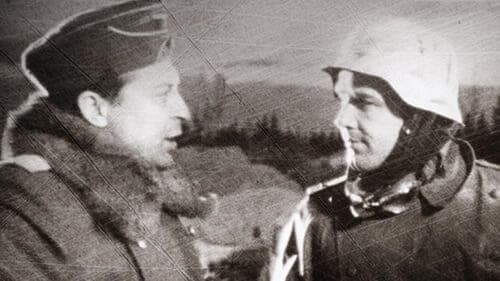
Oberstleutnant von Plönnies
Winter 1942: Like thousands of other German soldiers, Asch and Vierbein have ended up at the Eastern front. Although Vierbein finds a new friend in Kowalski, the squadron commander captain Witterer, a true army veteran, gives them a really hard time. Witterer’s pointless orders reflect the bad habits of many former superiors. And again, Vierbein has to bear the brunt.

Captain of the Tirpitz
In World War II, the greatest threat to the British navy is the German battleship Tirpitz. While anchored in a Norwegian fjord, it is impossible to attack by conventional means, so a plan is hatched for a special commando unit to attack it, using midget submarines to plant underwater explosives.
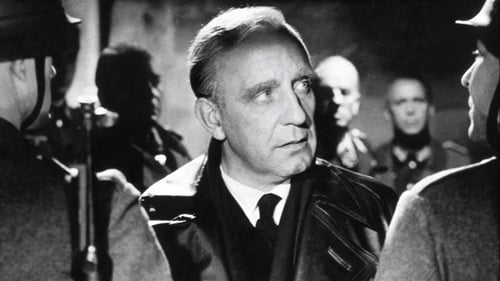
Admiral Canaris
Admiral Canaris is chief of the intelligence service of Nazi Germany. His department is quite successful and Hitler grants him all the money he wants for new developments. Still he's a thorn in the side of the Nazi chiefs, since he's not as unscrupulous as they want him and is known to criticize their ideology.
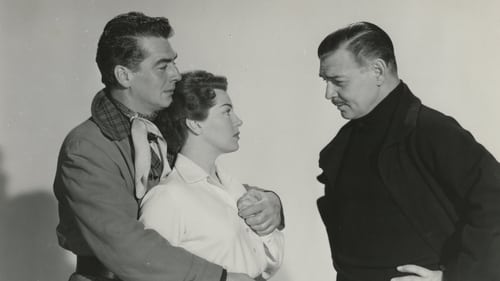
Col. Helmuth Dietrich
Screen superstars Clark Gable ("Gone With The Wind," "It Happened One Night") and sultry bombshell Lana Turner ("Peyton Place," "The Postman Always Rings Twice") team-up in this intriguing WWII drama. Suspected of being a Nazi spy, Dutch-resistance member Turner is given a last chance mission to redeem herself. Gable is an American colonel who falls in love with her. Co-starring Victor Mature ("My Darling Clementine") and Oscar-nominee Louis Calhern ("The Asphalt Jungle").

Bruckner

Prinz Paul
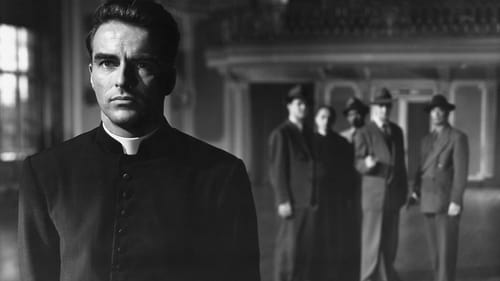
Otto Keller
教会で働くケラーから殺人の懺悔を聞いた神父ローガン。だが、状況証拠から神父自身が犯人にされてしまう。聖職者の彼は懺悔の内容を語ることができず……。戒律に挑戦した異色のサスペンス。

Rittmeister Graf Ledenburg

Col. Oberst von Ecker
WWII is entering its last phase: Germany is in ruins, but does not yield. The US army lacks crucial knowledge about the German units operating on the opposite side of the Rhine, and decides to send two German prisoners to gather information. The scheme is risky: the Gestapo retains a terribly efficient network to identify and capture spies and deserters. Moreover, it is not clear that "Tiger", who does not mind any dirty work as long as the price is right, and war-weary "Happy", who might be easily betrayed by his feelings, are dependable agents. After Tiger and another American agent are successfully infiltrated, Happy is parachuted in Bavaria. His duty: find out the whereabouts of a powerful German armored unit moving towards the western front.
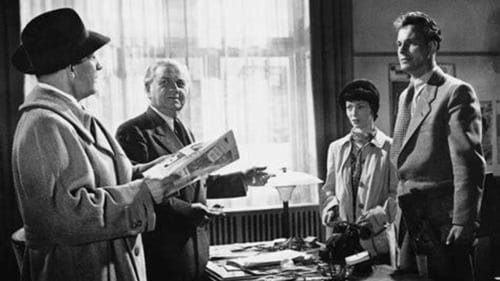
Chefredakteur Dr. Mannheim
The reporter Peter Zabel stumbles upon the sinking of the luxury yacht Orplid in Hamburg on August 14, 1949. The ship went down with a wedding party run by artists on a pleasure trip from Hamburg to Scotland . In spite of good weather and no technical problems. Out of personal curiosity, Zabel starts researching. Could the sinking of Orplid have political reasons? A German political thriller and film noir inspired by Carol Reed's "The Third Man".

Stieber
The Berlin Air Lift from the point of view of two NCOs.

Alexander Petershagen

Der Reaktionär
Long before he played the corpulent Goldfinger, German actor Gert Froebe was a scarecrow-skinny comedian. In Berliner Ballade, Froebe makes his screen debut as Otto, a feckless Everyman who tries to adjust to the postwar travails of his defeated nation. Stymied by black-market profiteers and government bureaucrats, Otto begins fantasizing about a happier life at the end of that ever-elusive rainbow. Director R. A. Stemmle doesn't have to strive for pathos: he merely places his gangly star amidst the ruins of a bombed-out Berlin, and the point is made for him. Filmed in 1948, Berliner Ballade was later released in the U.S. as The Berliner.

Konzertagent Urdoi

Thomas Volderauer

a movie by Heinz Paul

Dr. Kauper

Kommissar Wegener
The moral is simple: keep your mouth shut, especially when you're working during the wartime in a factory, which produces racing cars only, or someone can (or even must) get murdered. Not a good movie, not a bad either. The ending is abrupt and artificial, which seems to be a common plague of Third Reich's crime movies. Gustav Fröhlich could never get rid of his silent era mannerisms and overacting. But on the other side, this film is not boring and has to offer some decent plot turns and acting.

Anwalt
1943 German film.

Impressario Grundmann

Gerhard Morton, Angelikas Verlobter

Prof. Morrison

Otto Heyden
German chancellor Otto von Bismarck promises the dying emperor Wilhelm I. to be loyal to his grandson. But the gap between young Kaiser Wilhelm II. and old Bismarck is rapidly widening. It soon appears that an era is coming to an end.

Already a famous painter, Rembrandt van Rijn is commissioned to paint the Amsterdam Archers' Guild. But upon completion of the picture, the men of the guild feel duped, because they don't consider themselves flatteringly depicted in the painting. They therefore decline to pay for the work. During this dispute, the painter finds out his wife is close to death. He finds himself terribly lonely after her passing and suffers from depression until he decides once more to marry.

Peter Walbrecht
Melodrama about an actress falling in love with a man who wants her to give up her job.

Dr. Heinz

Oberarzt Dr. Gregorius
This Nazi propaganda film details the exploits of a group of German Luftwaffe pilots flying Stukas--fighter-bombers--in the Battle of France in the early days of World War II.

This is essentially a "Kraft durch Freude" propaganda film though the organization is never mentioned. A company's three day outing might very well be the last because bankruptcy is just around the corner. The people on the trip have all their individual problems and wishes, too. This episodic film might sound quite promising considering the basic idea but its script is determinedly optimistic and leads everything and anything to a happy end. The dramatic parts are finished in a rather implausible way, the comedic are terribly predictable. There's a badly misjudged singing scene in the bus, some bavarian shtick, the Regensburger Domspatzen are singing in Augsburg and so on...

Friseur Hübner

Francis

Schnellhase, Reklamechef

Kornitzki
Jozi's aunt runs an inn near the border and has a little side-job: she smuggles. Poor, naive Jozi doesn't know anything about it. Jozi falls in love with the young border patrol officer Hans and her feelings are amply returned. But Hans' supervisor suspects Jozi of smuggling and tries again and again to lead her into illegal temptation. Finally, Hans sees Jozi in a dance bar together with smugglers and believes, too, that she's one of their accomplices.

Manfred Bolle
Film by Boese.

Mariannes Verlobter

Geschäftsführer
German short comedy.

Ein Friseur

Englischer“ Offizier

2. Makler
Peter Voss, Thief of Millions (German:Peter Voss, der Millionendieb) is a 1932 German comedy crime film directed by Ewald André Dupont and starring Willi Forst, Alice Treff and Paul Hörbiger. It was based on the 1913 novel of the same title by Ewald Gerhard Seeliger which has been adapted into a number of films including previously in 1921 and later in 1946. It was the second to last film made by Dupont in Germany before he was forced to flee to the United States following the rise of the Nazi Party.
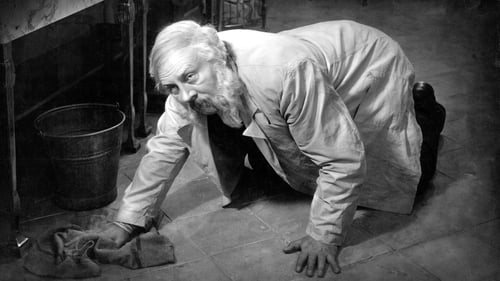
Small Role (uncredited)
An aging doorman, after being fired from his prestigious job at a luxurious Hotel is forced to face the scorn of his friends, neighbours and society.
